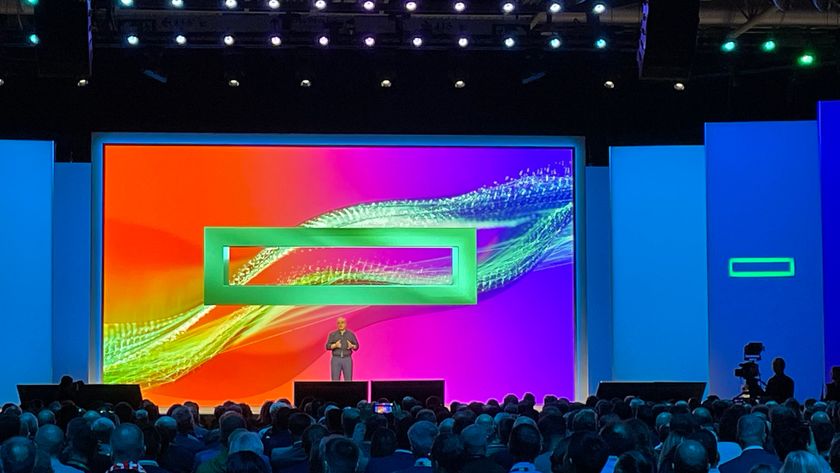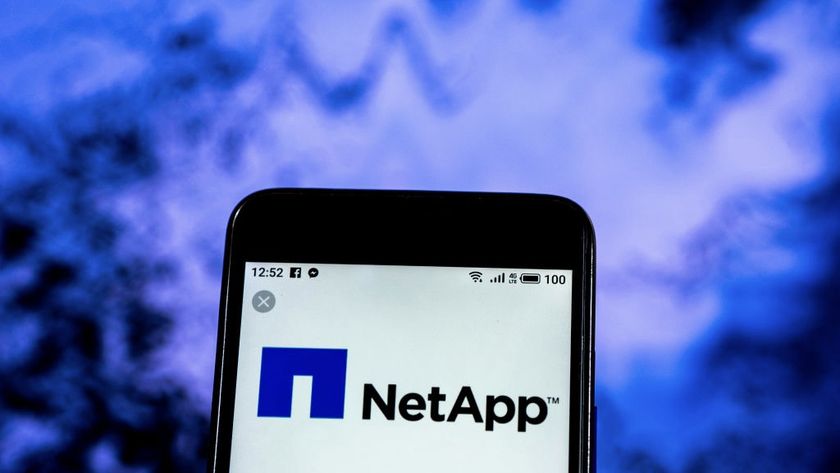Are virtualisation and cloud computing hurting hardware sales?
Will consolidating trends like virtualisation and cloud computing lead to further falls in server and storage sales?
But virtualisation isn't the only IT innovation affecting hardware. Cloud computing is another hot trend, and it too could see companies buying less hardware.
For example, storage as a service via the cloud is used as a replacement for boxes within the data centre and companies will not need to buy internal storage units if its data is being held elsewhere. So will the storage industry be affected?
Tony Reid, UK Services director for Hitachi Data Systems, sees the threat it could pose - but doesn't think trust for the cloud is there yet.
"Cloud computing is still very much a hot topic and has not yet finished being 'hyped'," he says. "The hype does have some validity as there are useful and well established cloud applications in the Storage as a Service category that could potentially impact the hardware industry."
"Generally, however, cloud services currently lack key attributes such as security, SLAs and compliance that are needed by larger companies," he adds. "Without this reassurance and without more cloud applications evolving to meet enterprise needs, there is little scope for cloud computing to dent the hardware industry."
He is not the only one who thinks so. Gartner released a report earlier this year saying cloud computing needed to mature before it hits the mainstream. And, last month the chief executive of security company Check Point, Gil Shwed, described the technology as 'inherently dangerous'.
Reid also believes the reported cost savings enabled by cloud computing are not as clear cut as many would have us believe.
Get the ITPro. daily newsletter
Sign up today and you will receive a free copy of our Focus Report 2025 - the leading guidance on AI, cybersecurity and other IT challenges as per 700+ senior executives
"From a storage perspective, there still haven't been any studies showing the true costs of using storage in the cloud as opposed to hardware," he claims. "Regardless of the big issue of security and compliance in the cloud, there is also no real evidence suggesting it is vastly cheaper than hardware when looking at total cost of ownership."
Essentially although many may be moving information into the cloud, critical data is set to remain within boxes in the data centre for some time.
All seems safe for now
Across the industry, it seems to be a consensus that although trends like virtualisation and cloud computing will affect the hardware industry, they will not take it down.
The key for vendors to survive these changes is to ensure they are well prepared.
Adam Thew, a business unit manager for the storage works division at HP, suggests that such trends would be unlikely to have a major effect on the hardware market as a whole if the businesses involved made the effort to innovate.
But - taking a dig at his rival - he warns: "If you are a company like Dell who has made their name by selling hardware, not from innovative products, then I would be worried."
Jennifer Scott is a former freelance journalist and currently political reporter for Sky News. She has a varied writing history, having started her career at Dennis Publishing, working in various roles across its business technology titles, including ITPro. Jennifer has specialised in a number of areas over the years and has produced a wealth of content for ITPro, focusing largely on data storage, networking, cloud computing, and telecommunications.
Most recently Jennifer has turned her skills to the political sphere and broadcast journalism, where she has worked for the BBC as a political reporter, before moving to Sky News.
















